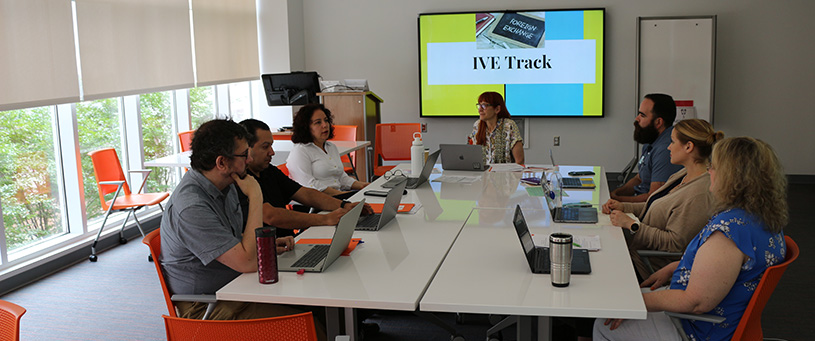- OTEI Home
- Clemson Resources
- Request OTEI Services
- Events and Programs
- Teaching Guides
Teaching Guides
Effective teaching happens when your teaching strategies and interactions with students convey transparency, community and engagement to support their learning How is this achieved? When you inclusively Design, Deliver and Reflect. How you choose to craft your assignments, your delivery methods, and your pursuit of personal reflection and growth are examples of inclusive teaching in action.
Clemson's Office of Teaching Effectiveness and Innovation (OTEI) offers a variety of services and resources to ensure your success as an educator prior to and throughout each semester. Browse our guides, templates and other helpful teaching tools to learn more about the importance of inclusive, evidence-based teaching practices.
Teaching in Action

Getting Started: Evidence-Based Teaching
New to OTEI? Start here with our evidence-based teaching strategies to better organize your teaching practice and learn new approaches in the field.
Syllabus and Course Design
Browse strategies for syllabus creation, syllabus templates, course design, writing learning objectives and other course and program development topics.
Assessment through Transparency in Learning and Teaching
Explore information on ways to support and assess student learning by building transparent assignments and tests, creating class sessions to encourage every student's learning, and delivering an effective course through transparency in learning and teaching.
Building Academic Community
Build community in your course, establish rapport with students, maintain positive relationships and encourage students toward a feeling of belonging and growth. Find support from the campus community for students' well-being and mental health.
Student Engagement
Discover evidence-based methods to engage all students in learning during and after a class session, whether you have a small, medium or large class. Learn how to be organized, transparent and inclusive in every approach, whether these are group, individual, active or quiet ways to engage.
Teaching Reflection and Review
Learn methods to reflect on your teaching, get advice on self-reflection and peer evaluation—formative and summative; and submit annual and promotion/tenure materials for the teaching section.
Can't find what you're looking for?
We're here to help. The Office of Teaching Effectiveness and Innovation offers consultations for feedback analysis, curriculum support, teaching as research and more.

